
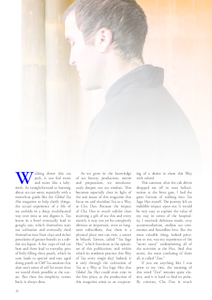 |
|
Walking down this tea path, it can feel more and more like a labyrinth. As straightforward as learning about tea can seem, especially with a marvelous guide like the Global Tea Hut magazine to help clarify things, the actual experience of a life of tea unfolds in a deep, multifaceted way over time as one digests it. Tea leaves in a bowl eventually lead to gongfu sets, which themselves start out utilitarian and eventually shed themselves into finer clays and richer porcelains of greater benefit to a subtler tea liquor. A few cups of red tea here and there lead to everyday pots of belly-filling shou puerh, which in turn leads to special and rare aged sheng puerh or Cliff Tea sessions that alter one's sense of self far more than we would think possible at the outset. But then the simplicity comes back; it always does.
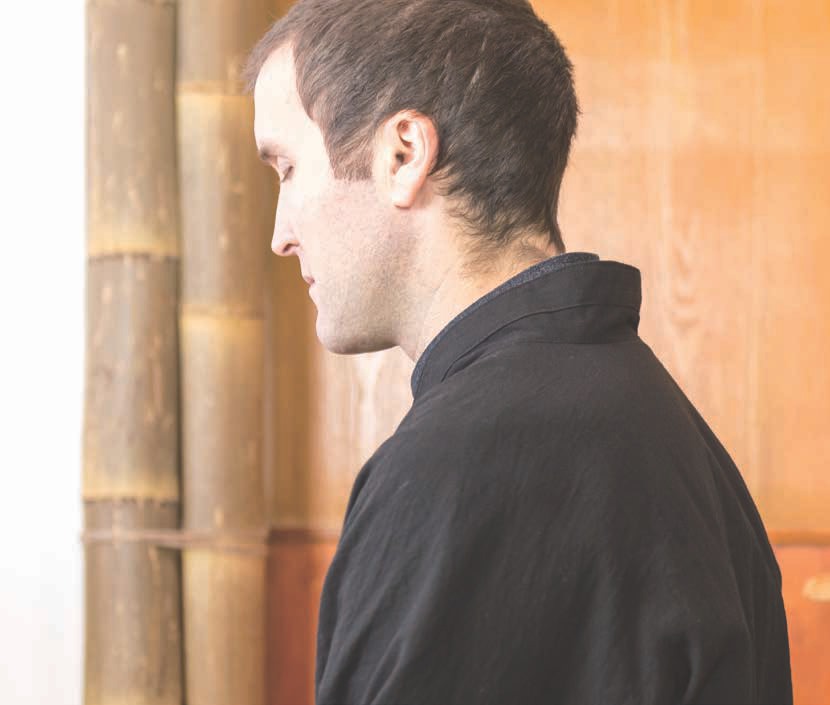
As we grow in the knowledge of tea history, production, terroir and preparation, we simultaneously deepen our tea wisdom. This becomes especially clear in light of the rare issues of this magazine that focus on and elucidate Tea as a Way, as Cha Dao. Because the impact of Cha Dao is much subtler than receiving a gift of tea this and every month, it may not yet be completely obvious or important, even to longterm subscribers, that there is a physical place one can visit, a center in Miaoli, Taiwan, called "Tea Sage Hut," which functions as the epicenter of this publication; and within which its residents practice this Way of Tea every single day! Indeed, it is only through the cultivation of Tea as a Way at Tea Sage Hut that Global Tea Hut could even exist in the first place, as the production of this magazine arises as an outpouring of a desire to share this Way with others!
This summer, after the cab driver dropped me off in near hallucination at the front gate, I had the great fortune of walking into Tea Sage Hut myself. The journey left an indelible impact upon me. It would be very easy to explain the value of my stay in terms of the hospitality I received: delicious meals, cozy accommodations, endless tea ceremonies and boundless love. But the most valuable thing, indeed priceless to me, was my experience of the "secret sauce" underpinning all of the activities at the Hut. And that secret, the most confusing of them all, is called "Zen."
If you are anything like I was prior to my visit, the meaning of this word "Zen" remains quite elusive, and it is hard to find its pulse. By contrast, Cha Dao is much more tangible to me: Do everything you do as if you were serving tea. But this begs the question: How do you serve tea? The package of tea that arrives each month, the water used to brew it, the kettle and the teapot employed in the service of brewing - all of these things are so hands-on. And in fact, many people who drink tea relate solely to these graspable attributes, such that tea service is so obvious as to not warrant deeper thoughts: pour the hot water on the leaves, pass cups around and drink! But is this actually the process being performed? Is tea so simple? On closer examination, one will find that along with the leaves there is some judgment about their quality; along with the pouring of water is the stream of a mental checklist of things to be done that day; and along with the kettle and teapot is the desire to get a more high-quality setup! Knowing these impulses well, the residents of Tea Sage Hut set their minds each day to achieving the true simplicity of Tea in all that they do. What I learned during my stay is that the way in which they "set their minds" to this achievement is Zen.
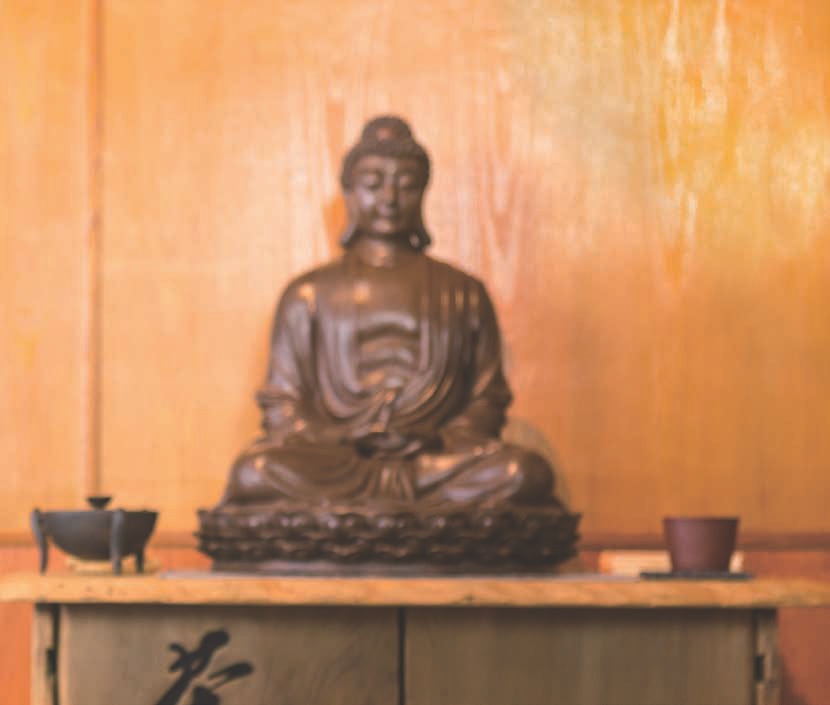
As Wu De writes at the outset of his book, Zen & Tea One Flavor, "It is said that the flavor of Zen and the flavor of tea are the same, and without an understanding of one, there is no mastery of the other." Therefore it appears mandatory that those practicing the Way of Tea would concurrently practice Zen in order to achieve anything resembling mastery. You only have to take one short tour around the Tea Sage Hut to know that something approaching mastery is in full effect. There, the heart of Zen is beating everywhere if you know how to feel its pulse! Fortunately for all of us with the desire to visit Tea Sage Hut, Wu De has provided a guidebook we can read well ahead of our visit in order to prepare us for what awaits. Let's get into some of its finer points now...
The format of Zen & Tea One Flavor has us alternating between figuratively "having a cup of tea" and reading a commentary "while the next one steeps." This metaphor is helpful to understanding the profound philosophy of Zen and Tea, since it reminds us to do just that: drink tea while we read, and contemplate between steepings. Anyone reading Zen & Tea One Flavor (or any book for that matter) would be wise to follow its tea drinking guidelines, as they serve to properly pace the reading for optimum digestibility. And more so than many other books, this one must be digested to be understood. It is important in Zen that this wisdom becomes "one's own wisdom." Wu De's transmissions in this book are imparted in such a way that an open mind, colored by Tea, can easily embody it. He himself says that actually imbibing tea along with his literary cues to do so is not necessary, but I highly recommend it! Although any chapter in the book can be read at random, Wu De describes the book in his introduction as a "twenty-one cup session," suggesting a slow digestion bowl by bowl - equal parts book and actual tea!
As the first chapter asks us to approach Tea and Zen with an empty, ready-to-learn mind, it helps to start reading this book in the same way. There he poignantly describes a tea session as "a basket to convey something deeper." The book, like a tea session, is pointing at something ineffable. Tea and Zen are too big to be spoken; yet Wu De can't help but utter many, many profound things throughout this book, weaving a succinct and poetic fusion of traditional Zen sayings into his own wisdom. He is not trying to feed you this wisdom as a means to fill you up, though. The point is that if you come empty-handed (and minded) to the book, your own wisdom will arise spontaneously. This happened to me while reading it and during my stay at the Hut, and I have been forever changed as a result.
In the second chapter, Wu De explains that to a tea sage, "the pots, cups and utensils are there to promote Samadhi, one-pointed mind." So here we learn that at least part of the "something deeper" promoted by a tea session is a certain quality of mind. He goes on to suggest that this mind is really "no mind at all." And those of us who have spent our lives chasing down this no-mind in meditation know how consistently elusive it can be. Does the book finally reveal the secret to attaining it? Wu De explains that, in order to have a chance, we'll have to practice "celebrating the ordinary," and take this party to the nth degree, i.e. every opportunity in every moment. Complete Zen and Tea mastery is never going to be found in a single session or even in the epic "twenty-one cup session" of this book. This is why the residents of Tea Sage Hut have configured their center, both in schedule and in Fengshui, as a place to make everything happening inside its walls a big celebration. A sign hanging next to the front entrance of the Hut reads: "No Entry Except on Party Business!"
Subsequent chapters unfold the terms of the celebration: cleanliness and purity, equal vision towards that which one experiences, full participation, removal of judgment and comparison. There is definitely a "way" to Zen just as there is a "way" to Tea. As Wu De's writing circuitously defines the way in which we can actually celebrate continuously, not just in fits and starts or only while having a formal tea ceremony, he enables us to see that these terms aren't arbitrarily set forth. Constant one-pointed mindfulness becomes more realistic, along with a foundation for practicing Zen through tea. Tea gives us the perfect platform upon which to cultivate this foundation, and Wu De's constant clarification of Zen avenues to masterful tea preparation stands us in good stead.
"Leaves and Water" is one of my favorites chapters because it describes an important roadblock to accomplishing the promise of a constant Zen party: the progression of your own life! Here Wu De takes a step back from tea and looks at all the other elements that comprise the life of a Chajin: one's own health, artistic impulses, hopes and dreams, the uniqueness of one's own journey, etc. Reconciling and harmonizing everything that one is becomes another term of the celebration. As Wu De puts it, "After some time, when art and life consummate, you realize that you are drinking Zen."
Lest we start jotting down the prerequisites to a proper Zen life in order to start applying them, Wu De soon reminds us that no checklist is ever going to help us, really. "To understand the essence of Zen," he says emphatically, "you must be Zenless." Once you arrive here in the book, having established a sense of foundation, you will hopefully see that the engagement with the very book you now hold in your hands is the very opportunity to practice letting go of the foundation you built up reading it! The reading suddenly becomes a great opportunity for direct experiential wisdom! Will you put the book down, stunned, in order to pour another cup of tea in an attempt to get to the bottom of it, only to realize that Tea itself is just as bottomless!? I realized that just as Tea Sage Hut is a center that is a realized expression of Zen, this book certainly meets Wu De's aspiration that it be an expression of Zen art rather than be about Zen art. Applying the transitive property, this book is then also a realized expression of Tea. Therefore, quod erat demonstrandum, if you really want to understand that package of tea that comes in the mail each month, you must read this book. Then sometime shortly after you read Zen & Tea One Flavor, you must visit Tea Sage Hut in order to celebrate!
To close, I would like to end this review expressing my deep admiration for Wu De's take on the famous twelfth-century ox-herding pictures, remade as "The Lost Tea-brewing Pictures," that conclude the book. The images and story contained therein left me with a thoroughly satisfied feeling that I had just traveled through a supremely special work of art. May you be as happy as I was when I first finished this great work!
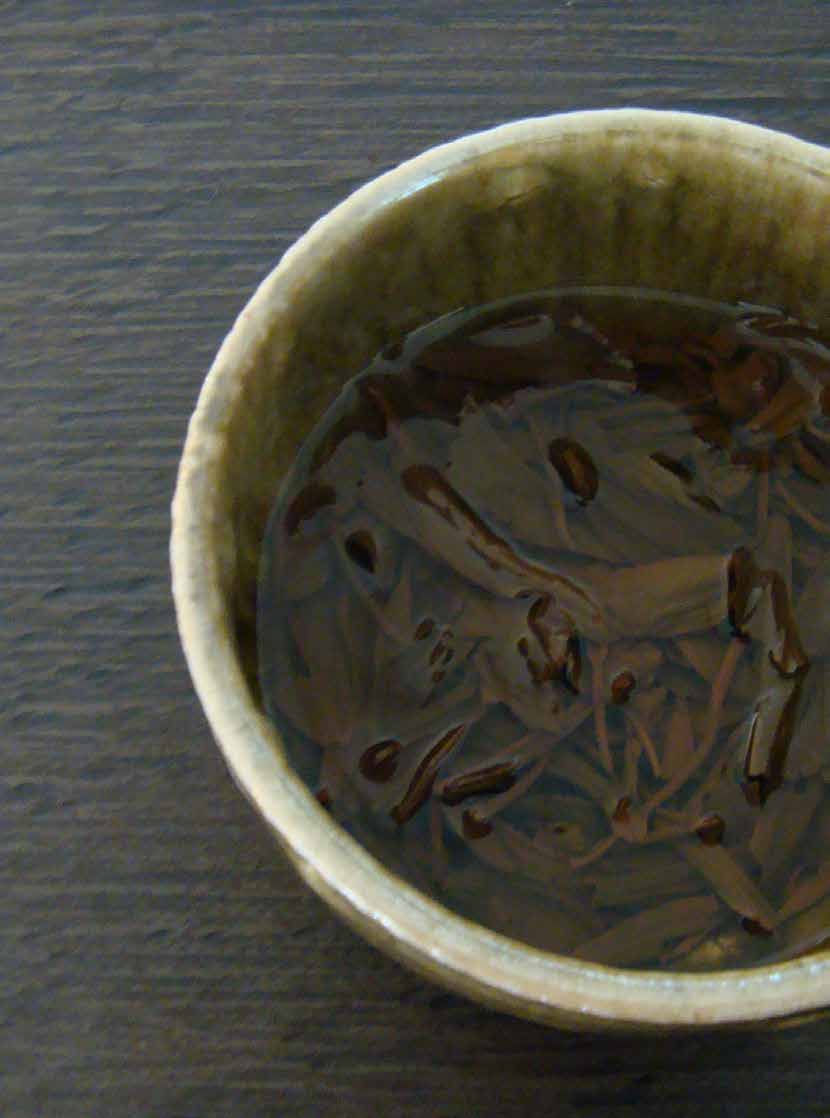
You devas should know that all such forms are taught by buddhas according to the ways of the world and not according to their inexpressible meaning.
One of the wisest professors at the University of Punditry had reached the end of a long and prosperous career, with an alphabet of letters after his name and a paragraph of awards to put in the small biographies printed on the backs of his many books. He smiled and accepted compliments, pretending to be modest while his face betrayed the fact that he was basking in it all. Despite his intellectualism and the fact that he had lived so disembodied that most ordinary people couldn't understand what he was saying - despite his "elephantiasis of the ratiocination organ" (as he himself would call it), he did deep down wish to understand the Truth, the world and even perhaps himself. He wasn't really content.
He had spent twenty years seeking answers in the library, discussing and re-discussing his ideals over and again in the jargon he and others had created. They sent memos - and later in their careers, emails - arguing the nuances of what "Truth" itself meant (because, of course, one had to establish all that before any real understanding could begin). Now, however, at the end of this long, winding path through academia, he still felt hollow, as if he was in fact no closer to understanding why he was here or what life was about.
A friend of the family was over for dinner one night and described a recent trip to the mountains. He mentioned meeting a monk who lived way up a winding trail in a small temple. He said the monk had become quite famous in the region for his wisdom and perspicacity. The scholar's ears perked up. Perhaps one such as this would have the answers to life. What did it all mean? Is there a God? What happens when we die?...
As he planned for the trip, the scholar made lists of questions - crossing some out with red ink and rewriting them. He then paced his study memorizing them, as it would be unseemly to bring the actual list before the monk. He insisted that his family stay behind in the small village, hiking up the trail himself. After a long, grueling trek, he found the small temple and adjoining cottage.
The monk invited him in. When he said that he had come from far away to ask the monk some questions of the utmost importance, the old man asked him to sit down and insisted that they first drink some tea. This made the impatient scholar a bit peeved, as he had waited so many years and was anxious to test the wisdom of one who hadn't read nearly enough books, but he agreed out of politeness. As the water boiled the old monk glanced out the window at the mountains, and the scholar thought he was being ignored. He used the time to organize his questions in his mind, silently counting them off on his fingers.
When the tea was ready, the monk placed a bowl before the scholar and leaned over with the teapot. His wizened hands were perfectly steady, and the stream of tea poured so smoothly it appeared soft in the dim light - it poured, and poured and poured. Soon the tea reached the rim of the cup. Then beyond. It spilled over the table and splashed onto the mat next to the scholar with a resounding, "Hey! What are you doing?!" The old monk set the pot down gently and gestured to the brimming cup with his eyes, "Your mind is like that cup, so pray tell me: Where am I to pour the wisdom you seek?"
Is your cup full or empty? Do you come to your tea as 5.2 grams of puerh tea harvested by the Menghai factory in 1997 using the 8582 recipe, with slightly larger leaves... or are you empty? Can your cup hold the tea you wish to drink, or has it too become something you've filled with ideas, opinions, questions or comments? And can we really enjoy the aroma, the flavor or the comfort of a cup of fine tea when we've made of it but another topic in our libraries?
There is enough to think about, worry about and debate in our lives without making the times set aside for our relaxation into something serious. Instead, let tea be just leaves and water. Approach it with an empty mind, ready to learn from the liquor itself rather than from a book on tea processing, history or other trivia. Some of that is fun and we're all curious; it can also be useful when purchasing tea, for knowing about tea production makes one an aware consumer. However, now that the tea is before us, let us wash away all the intellectual traps, whether about tea, Zen, spirituality, the Way we should live or even the Way we should drink tea...just leaves and water.
There aren't any questions about yourself to which you don't already have the answers. There is nothing about the tea you need to know which isn't taught by the liquor itself. 無 的 There is no need to record the moment with an internal dialogue - no need to describe the tea. There is just leaves and water.
When asked how to practice Zen, the master responded: "Drop all opinions!"
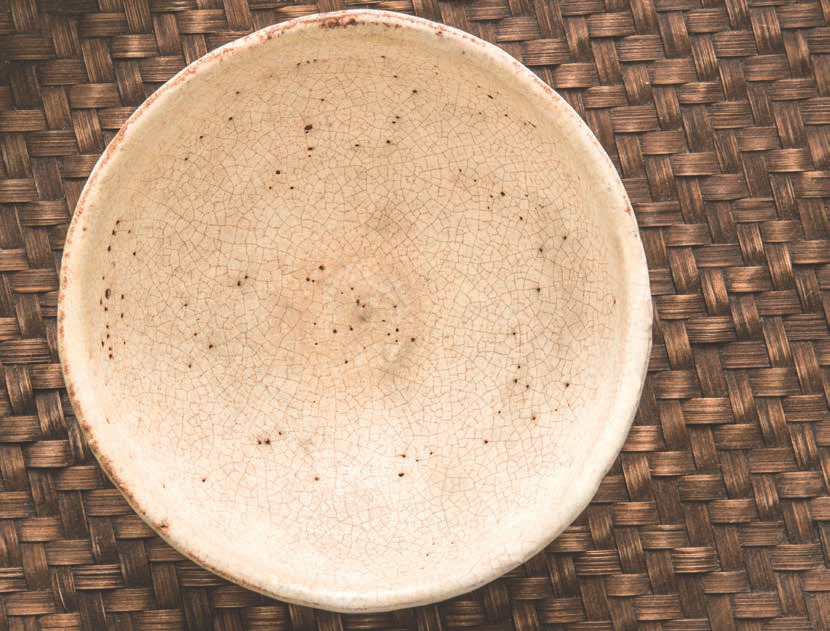
Don't approach tea as the scholar in this cup-story. Don't come to the mountain hermitage of your tea space with a lot of questions in the form of words. Instead, sit down before your cup of tea with a clear, relaxed mind - open to any wisdom it brews. This is, in fact, how the Zen adept approaches life: as if each moment was the master, and there was something to learn from every blade of grass.
The tea sessions, like any words that could describe them, are just "fingers pointing at the moon." They are a basket to convey something deeper. And that is why Japanese tea masters have often called tea books, tearooms and even their disciples by names like: "forgotten Basket (Bosen)" or "Abandoned Basket (Hosen)." After the basket carries something, it is abandoned.
Dump out your cup. Throw out all you have learned about meditation, tea or the Way. There is no need to understand tea when we can let the tea understand us. A simple, empty cup or bowl resting on the table as it awaits tea is the perfect symbol of the Zen mind: always beginning, always humble and waiting.
Lao Tzu often said that it was the spaces between a house's walls that made it useful, the hollow part of a pitcher that held the water; and, we may add, it is the freedom of the empty cup that makes it beautiful: I am that cup, humble and indiscriminate. The cup doesn't object. It holds great and mediocre tea alike. It also remains untainted after the tea is drunk. It is filled with a tea for some time and then releases it without a trace. Thoughts also pass through my mind, like tea through this cup; and let them also leave no traces to taint my future tea sessions. Let my mind also spend the majority of its time empty, so that when the tea is finally poured it will be fresh and new, unaffected by any cups I've drunk in the past. The tea I had before doesn't matter - only this cup! The moments that have gone or are yet to come also are not in this cup here before me. Without judgment, plain and unadorned wisdom is poured into me, emptied again, poured, emptied... If your mind is too full, empty it; and if it's empty, fill it. That is the natural and skillful use of a cup: empty... full... empty. full...
Your cup is now empty and awaiting the tea that will soon be poured, filling you with wisdom and Truth more palpable and real than any concept of an experience can ever be. Each sip is pure, unadulterated living wisdom and monumental presence, here and now. This is your life, it isn't elsewhere and there is no need to think about it, rationalize it or analyze it - just drink it!
